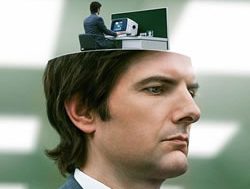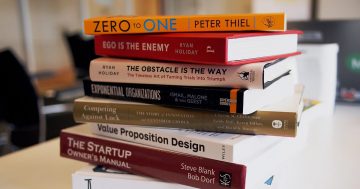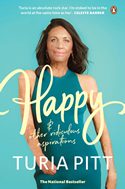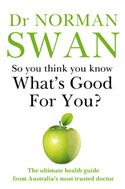In a world of information overload, Arianna Huffington* says we are losing the art of deep reading — and that is very troubling.
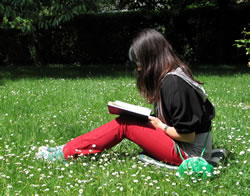 Read any good books lately? Read any books at all? If you’re like a growing number of people the answer is likely no.
Read any good books lately? Read any books at all? If you’re like a growing number of people the answer is likely no.
A recent poll by the Pew Research Centre found nearly a quarter of Americans say they haven’t read a book, or even part of one, in the last year.
That is believed to be a global trend — at least in so-called developed countries.
Finding the focus and marshalling our attention to read books has never been more challenging. That’s deeply troubling.
It’s not like we’re not taking in information. In fact, we’re drowning in it.
However, the ways we take information — in noisy, fragmented, random bursts — is robbing us of our attention.
It’s limiting our ability to reflect and think deeply, to connect with others and ourselves, and to tap into our wisdom.
According to a study by Microsoft, the average human attention span has shrunk to eight seconds, one second less than the attention span of goldfish.
In our defence, though, goldfish don’t use Twitter, Facebook and Instagram — and… sorry, what was I talking about again? I lost my train of thought.
Our new way of taking in information is driving our inability to focus and reflect deeply because it’s also altering the underlying architecture in our brains.
As Professor of Education at the University of California Los Angeles, Maryanne Wolf writes in The Guardian, in a world of digital reading and information intake, our deeper thought processes are fading.
“There’s an old rule in neuroscience that does not alter with age — use it or lose it,” Professor Wolf writes.
I love reading physical books. I can mark them up in the margins and highlight my favourite passages. As I do, it helps me commit them to memory.
I know you can highlight books online, but for me it doesn’t match the feeling of pulling a book off my bookshelves and looking at what I had highlighted maybe last week, maybe 10 years ago.
That’s what allows us to tap into our own wisdom, connect with the wisdom of the past, grow and evolve.
As Professor Wolf argues, reading in our noisy, bite-sized digital world has made skimming the new normal.
When we skim, we don’t have time to grasp complexity, to understand another’s feelings, to perceive beauty, and to create thoughts of the reader’s own, she says.
Deep reading is what allows us to step into the lives and experiences of others, nurturing and broadening our sense of empathy — something in short supply these days.
We’re confronting a paradox: The technology that connects us to the whole world is the same technology that keeps us drowning in the shallows and disconnects us from ourselves.
Technology has been a lifeline during the pandemic, allowing millions to work from home and stay in touch with friends and loved ones.
At the same time, it has produced ‘pandemic brain’, that combination of tech overload, stress and lack of focus we’ve all experienced over the past two years.
The answer to having our attention stolen is to steal it back.
Padmasree Warrior, a former Chief Technology Officer at Cisco and Motorola, has founded Fable, a platform for reading and online book clubs.
For Ms Warrior, reading was her refuge while growing up in India, but since then she knows how technology has accelerated the pace of our lives and made deep reading more difficult.
“Starved for time and with limited mental energy, we are endlessly scrolling, constantly searching for ways to fill the micro-moments in our busy lives or distract ourselves from things unfolding outside our doors,” she writes.
Her solution is to “stop ingesting digital junk and start reading a book”.
She believes reading books, especially fiction, can be “a powerful tool for mental wellness”.
There are even mental health professionals who practice ‘bibliotherapy’, using reading as an adjunct to other forms of clinical therapy for patients with mental health issues.
In the United Kingdom, the non-profit organisation, The Reader promotes a “shared reading movement” as “a tool for helping humans survive and live well”.
The pandemic has been a forced pause, one that has given us time to think about what we truly value.
It’s allowed us to see the value of going deeper, of connecting with ourselves in more profound and meaningful ways.
There is a collective longing to stop living in the shallows.
Reading is one of the most powerful — and widely available — antidotes to our harried, always-on culture of stress and burnout.
We still might not be able to travel freely, but with books we don’t need to get on a plane or get a negative test to be transported to another place, or another time.
By allowing us to see the world from other perspectives, reading makes it more possible to come together and work collectively to meet the big challenges we’re facing.
So grab a book, and for a few hours trade the shallows for the depths.
*Arianna Huffington is the founder and Chief Executive of Thrive Global; the founder of The Huffington Post, and the author of 15 books, including, most recently, Thrive and The Sleep Revolution.
This article first appeared at LinkedIn.


